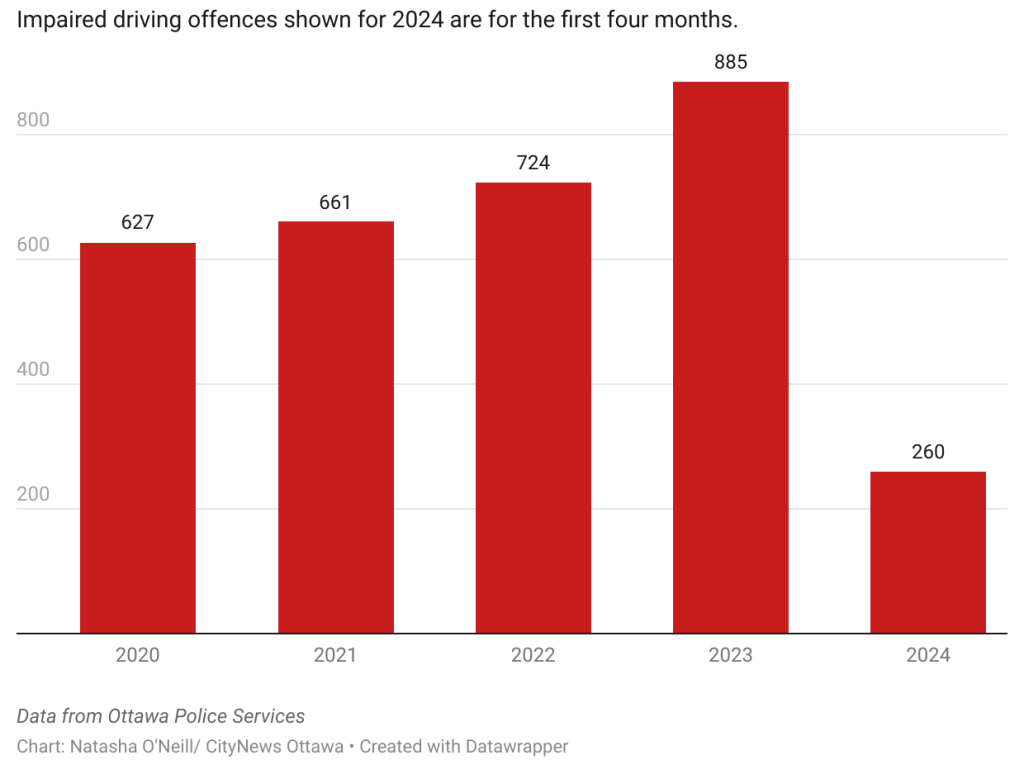In the first four months of 2024, Ottawa Police Services have charged 260 drivers with impaired driving-related offences.
This, acting sergeant Amy Gagnon said, is “something to be worried about.”
“Impaired driving touches, everyone,” she told CityNews Ottawa in an interview. “Alcohol is legal, cannabis is legal (but) driving is a privilege. And we can make that choice to keep each other and ourselves safe.”
In a press release, OPS said there has been a rise in impaired driving in the nation’s capital. Last year, 13 people died due to collisions where alcohol and/or drugs were believed to be a factor.
Over the course of 2023, 885 persons were charged with impaired driving-related offences, an increase from 724 incidents in 2022.
“These numbers are consistently increasing, year after year,” the release reads.
Number of persons charged with impaired driving offences in Ottawa

Although the pandemic dramatically changed driving habits, Gagnon said the force saw a “drastic increase” in impaired driving post-COVID as more people were on the streets.
“We are seeing an increase (in impaired driving) since pre-COVID and that is actually worrisome,” she said.
The press release from OPS talks about impaired driving, but focuses on the message that it is not just “drinking and driving.”
Gagnon said Ottawa police are charging between 80 and 90 drivers with impaired driving by drugs a year, “especially in the last few months of 2023 and the beginning of 2024.”
“There does seem to be that increased use,” she said. “And we’re not talking about just cannabis, unfortunately, we are talking about some of the illegals like narcotics and stimulants.”
There are a few tools at the disposal of the force, including increased awareness and mandatory alcohol screening when pulling a driver over. The police are also using data to target certain areas of the city where impaired driving is a problem.
In the Greater Toronto Area, the Ontario Provincial Police (OPP) launched a pilot project that allows officers to ask drivers for a breath test when being pulled over, and if they refuse, could be charged.
Gagnon said Ottawa police will be watching how the trial goes. If it’s successful, she said she could see it becoming a standard across Canada.
“People need to understand that we’re not infringing on your rights, that driving is actually a privilege, it’s not a right,” she said. “Part of that privilege comes with the responsibility of making sure you’re safe.”